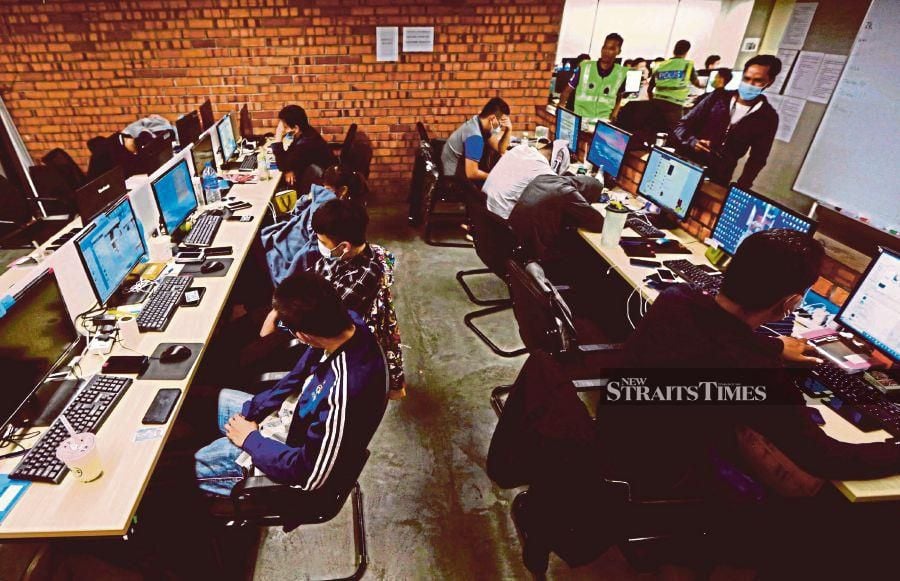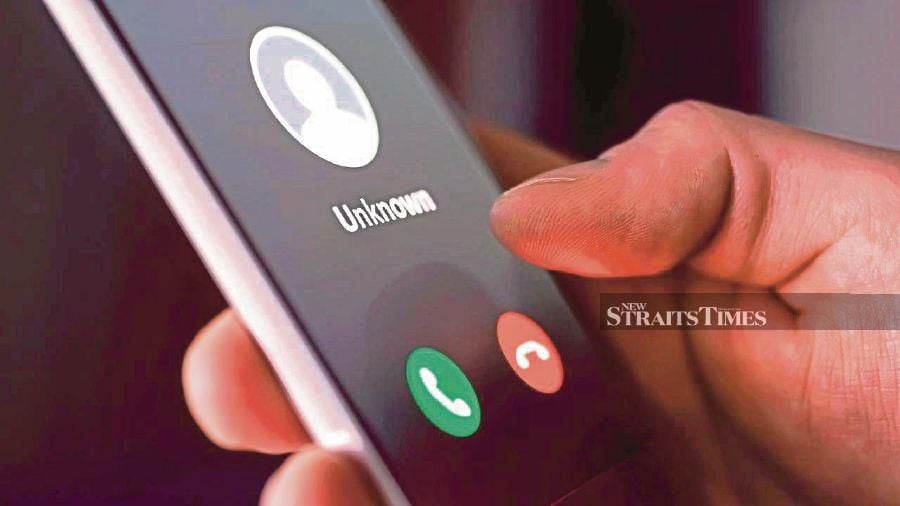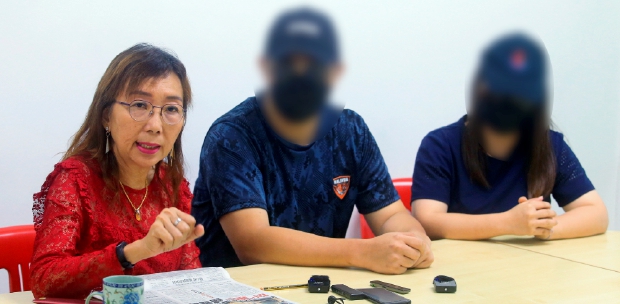KUALA LUMPUR: The proliferation of Macau scams and increased public awareness of their tactics have had an unintended impact on industries reliant on phone communication with their customers.
With phone conversations being a key component of their business, employees of legitimate companies are now regarded with suspicion when they make cold calls, with some even verbally abused after they are accused of being scammers.
A bank officer shared that many customers, mostly loan defaulters, misused apps like TrueCaller, which identify incoming calls and label bank loan collectors as "scammers".
"Of the 10 calls we made from our office line, only two were answered because our numbers were flagged as scammers.
"Those who do answer often harass us and refuse to cooperate when we ask for their car registration number for verification purposes.
"Without verification, we can't proceed with the conversation," the officer said, highlighting the need to use mobile numbers to contact customers.
While defaulters may find respite by avoiding bank collectors, this prompts banks to start the debt recovery process.
The procedures include filing a civil suit and obtaining a repossession order after the statutory notices, as outlined by the Hire Purchase Act 1967, have expired for the customer.
"When we can't reach them, fail to follow up or negotiate payment, we will initiate the repossession procedure," he said.
The bank officer added that the Malaysian Communications and Multimedia Commission (MCMC), in February, issued a directive requiring telecommunication companies to block messages containing links and requests for private details, as well as those with phone numbers.
This is to prevent the public from falling for scams.
"This, on top of several other laws, have further complicated our efforts to reach customers.
"If they prohibit us from using their numbers to call, what other options do we have?"

Ikhwan, a 28-year-old customer service representative at an e-hailing company, said apart from the scolding and accusations, many customers avoid answering his calls altogether.
He said there wasn't much of an issue if calls were made via an in-app phone. However, since their service operates round the clock and the in-app phone can only be used until 10pm, an office number has to be used to call customers after that.
"The first thing we do when we call them is introduce ourselves.
"We then ask some questions for verification purposes, normally their phone number and address.
"This is where customers become reluctant to share such information and call us scammers instead.
"Some would demand that we communicate via email," he said, adding that the issue would take longer to resolve.
Ikhwan, who has been in the industry for three years, said it now took longer to convince customers they were genuine customer service representatives.
"Older customers normally require us to convince them a bit more, only then would they cooperate."
A former telemarketer, who wished to remain anonymous, said she left the job after a month because she could no longer bear the pressure of being called a scammer.
"I worked with a registered credit company and my job was to call those who may need financial assistance to offer loans.
"But whenever I called them, I was accused of being a scammer, an 'ah long'. Some would even scream at me over the phone.
"Normally, I would laugh and explain my job to them. That is what my seniors taught me," said the 18-year-old.
She said the proliferation of phone scammers made the job difficult as she had to spend a lot of her time convincing the person at the other end to trust her.
"Most of them would answer the phone. But when I introduce myself and the name of my company, they would end the call.
"Out of 10 people I call, I'd say that only two would stay on the line a bit longer to listen," she added.





